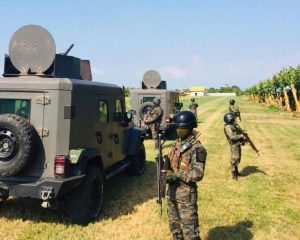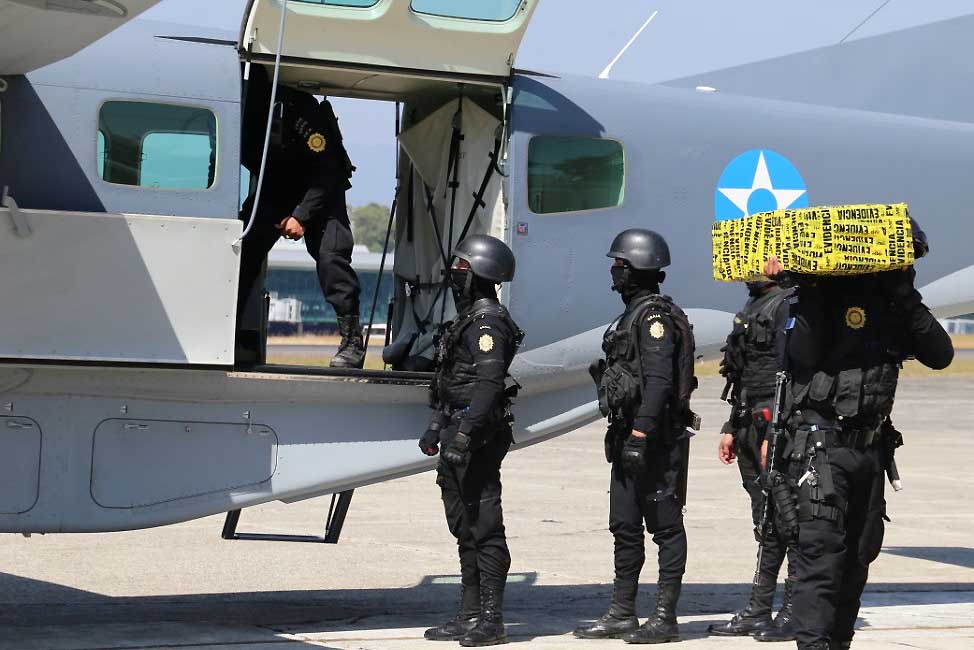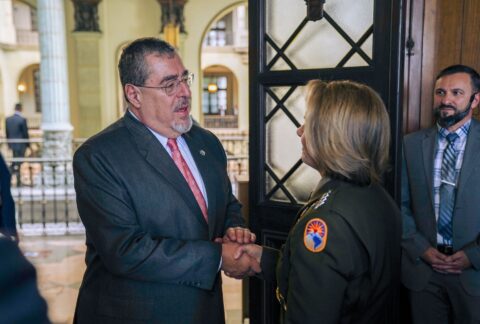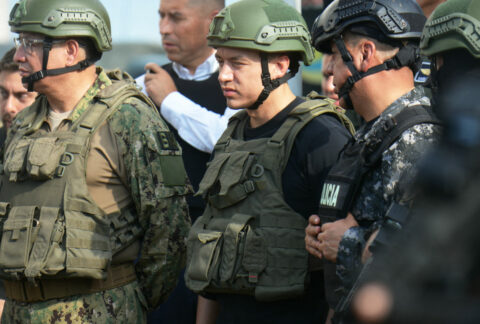The Guatemalan Armed Forces have seized more than 40 tons of cocaine in different operations in the last three years. The Army, Navy, Air Force, and National Civil Police constantly coordinate to face regional narcotrafficking.

“Thanks to the acquisition of new equipment, such as Air Force radars, Navy vessels, and weapons for the ground forces [Army and Police], we carried out different military operations with great success,” Army Major General Juan Carlos Alemán Soto, Guatemalan minister of Defense, told Diálogo. “This is how our military forces contribute to the regional effort in the fight against this scourge, so that we can prevent drugs from getting to their final destination [the United States].”
On January 27, 2020, authorities intercepted an aircraft with 3,748 pounds of cocaine in San Andrés, Petén department. In this operation, ground units engaged the criminals, who were outnumbered by the military, said the Ministry of Interior.
In 2019, security forces found 54 illicit aircraft, and during reconnaissance operations identified and destroyed 26 clandestine airstrips. Between 2018 and 2017, the military destroyed 19 illegal airstrips and intercepted 20 aircraft loaded with drugs, the Ministry says.
Guatemala’s geographic location is very attractive for coca leaf growers and is suitable as a northbound corridor, said InSight Crime, an organization that studies organized crime in Latin America. Narcotraffickers seek to turn Central America into a cocaine-producing region to smuggle the drug to the United States and Europe and to reduce the complex and costly logistics of doing it in South America, said the international news agency Reuters.
“The combination of narcotrafficking, organized crime, and violence is more evident in urban areas, where we contribute to the effort that other institutions make,” said Maj. Gen. Alemán. “But criminals try to infringe on the most remote areas of our territory. Therefore, our main support to counter this scourge can be seen in isolated areas that don’t appear to be directly connected to urban crime.”
The Armed Forces increase their training in specialized and readiness operations to provide a timely response in case of any threat, says the Army’s website. As a deterrence measure, the Armed Forces have increased air, sea, and ground patrols throughout the country. In addition, service members take part in exercises with other armed forces of the region to build coordination and share strategies and tactics, the Ministry says.
“We will continue to work jointly with the leadership of U.S. Southern Command [SOUTHCOM] to improve efficacy and efficiency in our main role: to defend our country and neighbors, and to strengthen the security that the people in the region demand of us,” Maj. Gen. Alemán concluded.









